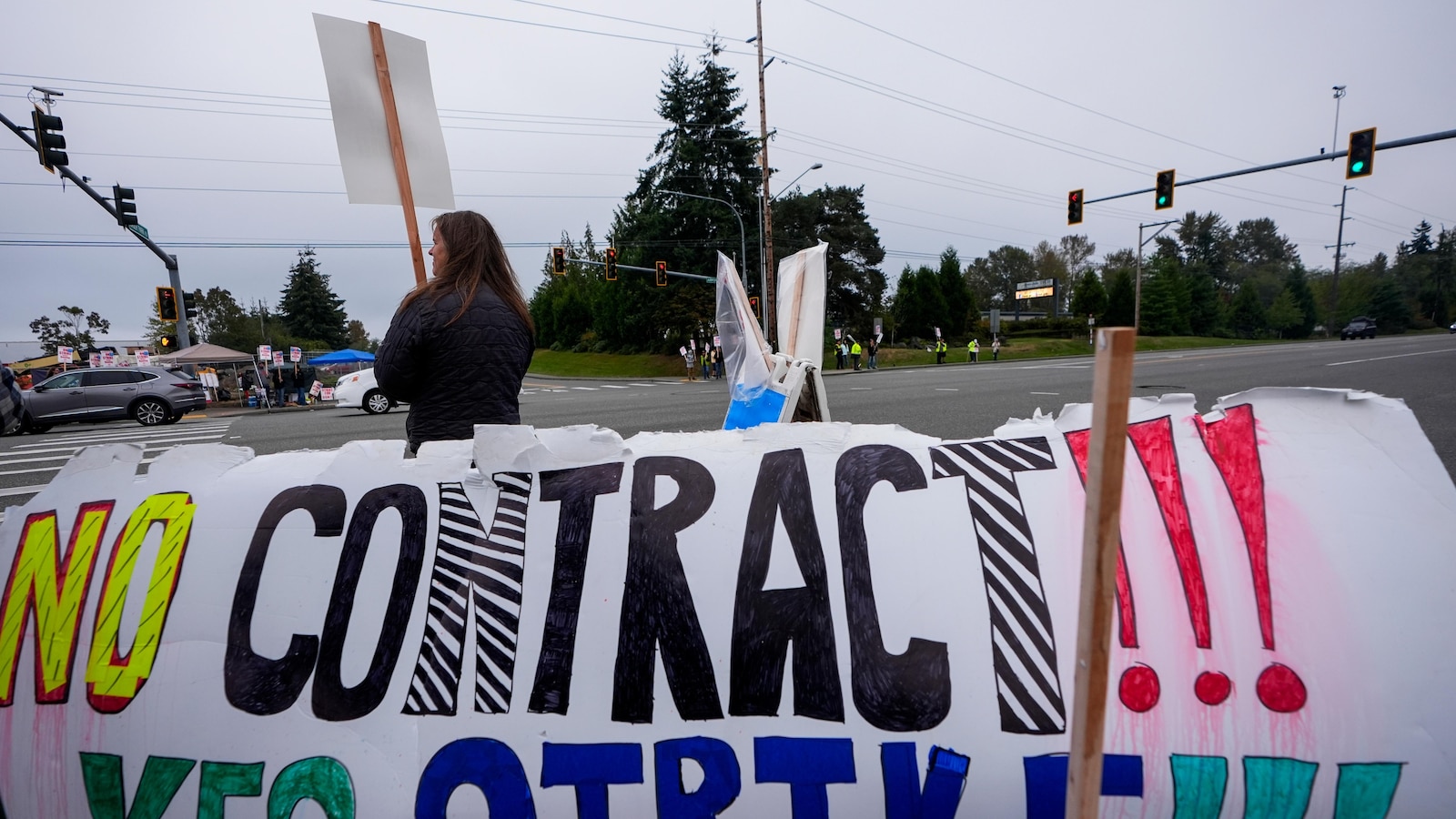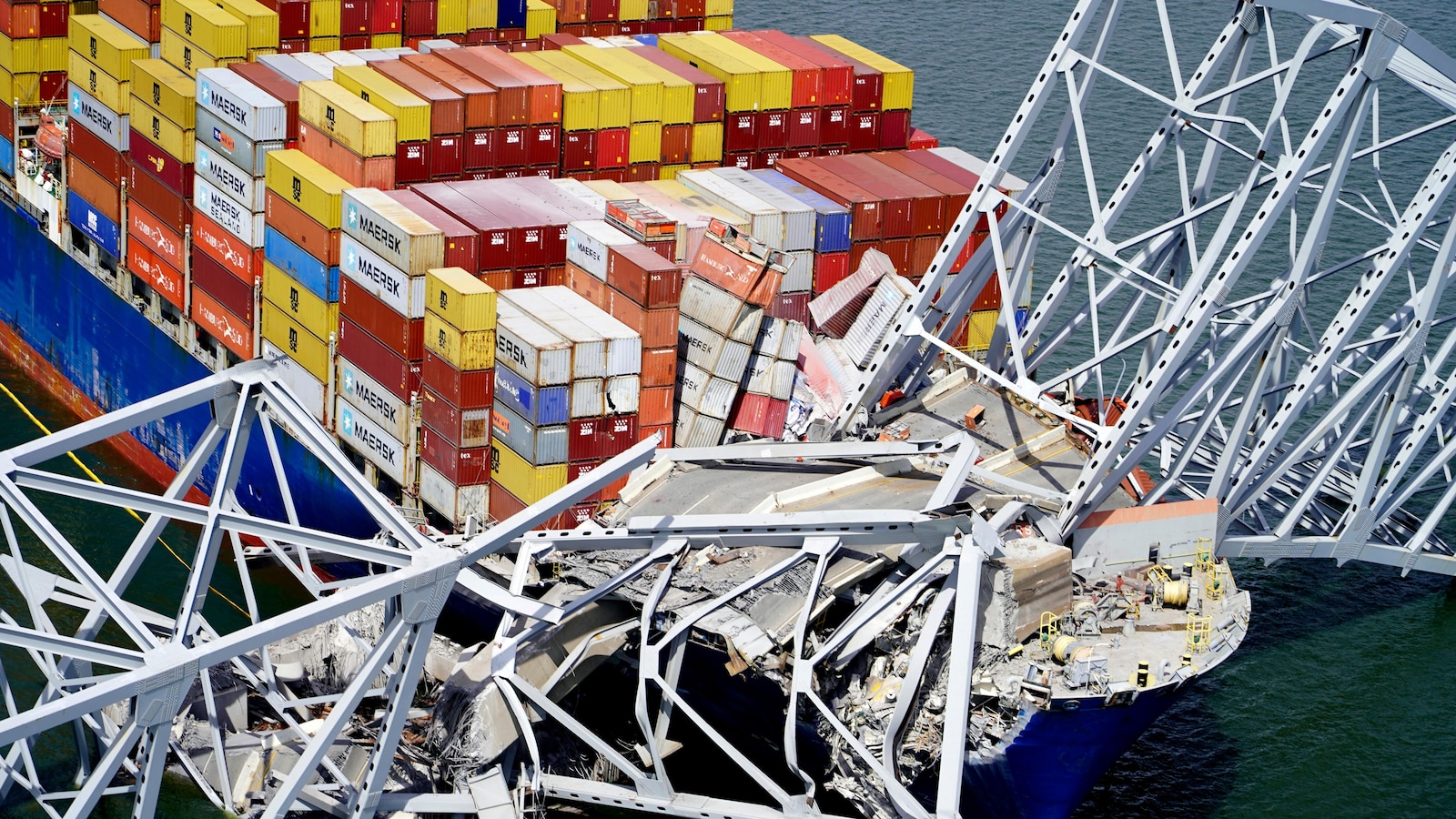
SEATTLE — Boeing plans to freeze hiring and reduce travel and is considering temporary layoffs to save cash during a factory workers’ strike that began last week, the company told employees Monday.
The company said the moves, which include reduced spending on suppliers, were necessary because “our business is in a difficult period.”
Chief Financial Officer Brian West detailed 10 immediate cutbacks in a memo to employees. They include a freeze on hiring across all levels, pausing pay increases for managers and executives who get promoted, and stopping all travel that isn’t critical.
“We are also considering the difficult step of temporary furloughs for many employees, managers and executives in the coming weeks,” West said.
Boeing’s business is in a difficult spot, he said, adding: “This strike jeopardizes our recovery in a significant way.”
About 33,000 workers represented by the International Association of Machinists and Aerospace Workers began a strike early Friday. The walkout came after workers rejected an offer of a 25% increase in pay over four years. The union originally sought a pay hike of at least 40%.
Representatives of the company and the union are scheduled to meet Tuesday with federal mediators. The union has started to survey its members to learn what they want most in a new contract.
Striking workers are picketing at several locations around Washington state, Oregon and California.
Outside Boeing’s huge factory in Everett, Washington, Nancie Browning, a materials-management specialist at Boeing for more than 17 years, said last week’s offer was worse than the one that prompted a two-month strike in 2008. She said that without annual bonuses that workers have come to depend on, the proposed pay increase was more like 9%, not 25%.
“We just want a piece of the pie like everybody else,” she said. “Why should we work all this overtime and bust our backs while these guys (Boeing executives) are sitting sitting up in their suites just raking in the cash?”
The bonuses have emerged as a flash point for union members. Workers say they range from $3,000 to $5,000 a year.
Boeing says it is hard to calculate bonuses in a way that is fair to 33,000 people who perform different jobs. So instead, the company proposes to ditch the payouts and replace them with automatic contributions of $4,160 per year to each employee’s 401(k) retirement account.
Workers are bitter that in contract extensions over the past 16 years, Boeing ended its traditional pension plan and lowered health care benefits.
“We want our pension back,” said Jacob Bustad, a machinist with Boeing for 14 years who was also on the picket line in Everett. “We just keep losing and we never gain, while the people at the top just get more and more money. Boeing has done really good for me and my family, but these last years have been hard.”
Boeing has lost more than $25 billion since the start of 2019, and burned through $4.3 billion in the second quarter of 2024 alone as it stood poised to post another money-losing year. The strike will delay deliveries of new planes, which are an important source of cash for the company.
Stephanie Pope, the head of Boeing’s commercial-airplanes division, cited the company’s $60 billion in total debt in urging blue-collar workers to accept the contract offer last week. She called it the best offer Boeing had ever made — and endorsed by the union’s local president and negotiators.
But workers rejected the recommendation of their own leaders, which had not happenedsince 1995.
Additional cost-cutting moves spelled out in the chief financial officer’s memo included eliminating first- and business-class service for anyone on travel that is deemed critical, and stopping spending on outside consultants.
West also said Boeing plans to make “significant reductions in supplier expenditures” and will stop most supplier purchase orders related to the 737, 767 and 777 airplane models.
After the strike started, Moody’s put Boeing on review for a possible credit downgrade, and Fitch said a strike longer than two weeks would make a downgrade more likely. Both agencies rate Boeing debt one notch above non-investment or junk status.
___
Koenig reported from Dallas.
Boeing, one of the world’s largest aerospace companies, is considering implementing temporary layoffs in order to conserve cash amid a strike by its machinists. The strike, which began last month, has disrupted production at several Boeing facilities and has put a strain on the company’s finances.
Boeing’s decision to consider temporary layoffs comes as the strike shows no signs of ending anytime soon. The company has already lost millions of dollars in revenue due to the strike, and with no end in sight, Boeing is looking for ways to cut costs and preserve cash.
The temporary layoffs would affect a significant number of Boeing employees, including machinists and other workers involved in the production of Boeing’s commercial airplanes. The layoffs would be temporary in nature, meaning that affected employees would be able to return to work once the strike is resolved and production resumes.
While temporary layoffs may help Boeing conserve cash in the short term, they could have long-term consequences for the company. Layoffs can have a negative impact on employee morale and productivity, and could potentially lead to a loss of skilled workers who may seek employment elsewhere.
In addition to considering temporary layoffs, Boeing is also exploring other cost-cutting measures to weather the financial impact of the strike. The company has already reduced production rates at some of its facilities in response to the strike, and is looking for ways to streamline its operations and reduce expenses.
Despite the challenges posed by the strike and the need to conserve cash, Boeing remains committed to reaching a resolution with its machinists and returning to full production as soon as possible. The company recognizes the importance of its skilled workforce and the need to maintain its position as a leader in the aerospace industry.
In the meantime, Boeing is working closely with its employees, suppliers, and customers to minimize the impact of the strike and ensure that it can continue to deliver high-quality products to its customers. The company is hopeful that a resolution can be reached soon so that production can resume and normal operations can be restored.


